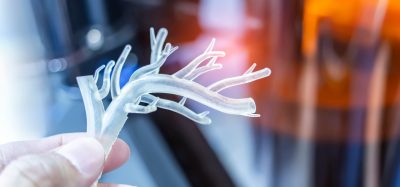International consortium CANCER-ID to develop novel biomarker technologies in cancer
Posted: 23 April 2015 | Victoria White
Bayer and UKE are the main coordinators of a new international consortium, CANCER-ID, to develop novel blood-based biomarker technologies in cancer…


Bayer HealthCare and University Medical Centre Hamburg-Eppendorf (UKE) are the main coordinators of the newly founded international consortium, CANCER-ID, to develop and validate novel blood-based biomarker technologies in cancer.
The five-year project will focus on establishing commonly agreed standards for the isolation, identification and analysis of novel circulating biomarkers with the aim to improve the development of personalised medicines for cancer patients. CANCER-ID is a public-private partnership supported by Europe’s Innovative Medicines Initiative (IMI).
Blood-based biomarkers such as circulating tumour cells (CTCs), circulating free tumour DNA (cfDNA) and microRNAs (miRNAs) are potential indicators for the tumour burden of patients living with cancer. Derivation of these markers from blood may offer an additional invaluable tool for modern cancer therapy: apart from being of high importance when tumour biopsies are not accessible, blood-based tests may allow a continuous follow-up of disease markers offering a means to closely monitor the efficacy of treatment and potentially guide the selection of therapy.
Automation now plays a central role in discovery. From self-driving laboratories to real-time bioprocessing
This report explores how data-driven systems improve reproducibility, speed decisions and make scale achievable across research and development.
Inside the report:
- Advance discovery through miniaturised, high-throughput and animal-free systems
- Integrate AI, robotics and analytics to speed decision-making
- Streamline cell therapy and bioprocess QC for scale and compliance
- And more!
This report unlocks perspectives that show how automation is changing the scale and quality of discovery. The result is faster insight, stronger data and better science – access your free copy today
CANCER-ID brings together a large experienced team of biomarker experts
“CANCER-ID is an excellent example of a project in which a public-private partnership enables a collaborative research approach to come up with novel concepts in modern cancer therapy”, said Dr Thomas Schlange, Senior Scientist of Global Biomarker Research at Bayer HealthCare Global Drug Discovery and Coordinator of CANCER-ID. “The consortium brings together a large experienced team of biomarker experts from academia and industry as well as smaller companies creating a Europe-wide network of complementary capabilities that extends far beyond the scope of traditional ‘one-on-one’ industry-academia collaborations.”
Important challenges for the development of all circulating biomarkers are assay sensitivity, specificity and standardisation as well as validation. In the last phase of the project, the validated assays will be deployed in controlled clinical studies to prove their broad applicability and clinical utility in the treatment of patients living with cancer.
“Blood-based analysis of tumour derived cells and nucleic acids offer a novel concept of “liquid biopsies” which allows to receive real-time information relevant to cancer diagnosis and therapy”, said Prof. Klaus Pantel, Head of the Department of Tumour Biology at the University Medical Centre Hamburg-Eppendorf, Germany, and the academic lead of the CANCER-ID consortium. “The CANCER-ID project fills the substantial gap between basic research focused on novel methods for the detection and characterisation of circulating tumour cells and nucleic acids and the development of robust validated assays required to bring the liquid biopsy concept into the clinic.”
The CANCER-ID consortium consists of pharma and non-pharma industrial companies, universities and clinical trial institutes, as well as small and medium enterprises (SMEs) from all over Europe. The 33 consortium partners are all key players in their fields constituting a unique network of experts in the areas of tumour biology, biomarker development, clinical sciences and bioinformatics.
Related topics
Biomarkers, Drug Discovery, miRNAs
Related organisations
Bayer HealthCare, Cancer Research








